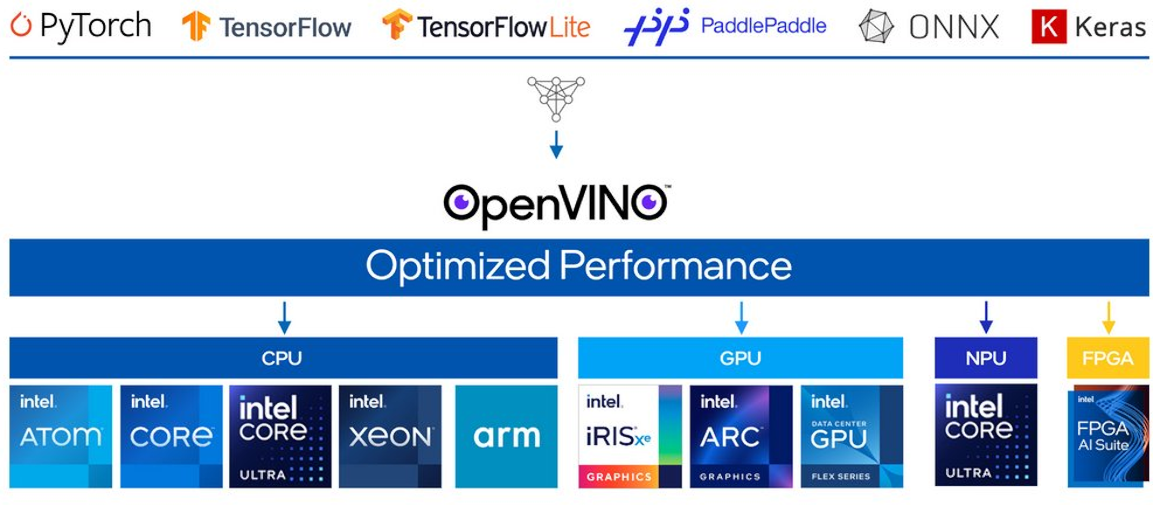OpenVINO with Generative AI
14. Jan 2025 | Alessandro de Oliveira Faria | CC-BY-SA-3.0

The openSUSE Innovator initiative and the Intel Innovator program play a crucial role in ensuring that the openVINO repository remains up to date for the openSUSE Linux distribution community, which I continually to strive to help.
OpenVINO (Open Visual Inference and Neural Network Optimization) is one of the most crucial tools in the AI ecosystem, especially for applications requiring optimized performance for deep learning model inference. The 2024.6.0 release that arrived in Tumbleweed brings significant advancements in compatibility, optimizations and support for complex models, including those used in Generative AI, such as Large Language Models (LLMs).
The Importance of OpenVINO on openSUSE Linux
- Seamless Hardware and Software Integration: OpenVINO provides native acceleration for Intel CPUs and GPUs while maintaining flexibility to support other platforms. When paired with openSUSE Linux’s optimized kernel and advanced library compatibility, OpenVINO reaches its full potential.
- Generative AI in Open Source: In the era of Generative AI, tools like OpenVINO democratize access to cutting-edge technologies and allow developers of all levels to create advanced solutions directly on openSUSE without requiring expensive proprietary hardware.
- Performance and Efficiency: OpenVINO significantly reduces inference times and resource usage, which is a critical feature for LLM-based applications processing large amounts of data in real-time.
- Developer Simplicity: One of OpenVINO’s greatest advantages is its accessibility. It enables even beginner developers to build robust applications with minimal code while still offering flexibility and customization for advanced projects.
Building an LLM Application in 3 Lines of Code
With OpenVINO, creating an application using a generative language model is as simple as:
import openvino_genai as ov_genai
pipe = ov_genai.LLMPipeline("TinyLlama-1.1B-Chat-v1.0/", "CPU")
print(pipe.generate("Openvino é", max_new_tokens=100, do_sample=False))
This simplicity highlights how OpenVINO allows seamless integration of Generative AI technologies into openSUSE Linux, combining optimization with ease of use.
Conclusion
The presence of OpenVINO on openSUSE Linux reinforces the role of open source in leading technological advancements in the AI era. It empowers businesses, independent developers and enthusiasts to build efficient, scalable and impactful applications. With tools like OpenVINO, openSUSE positions itself as a powerful platform for innovation in Generative AI.
Feedback and suggestions for the evolution of work can be sent to Alessandro de Oliveira Faria (A.K.A. CABELO) cabelo@pensuse.org